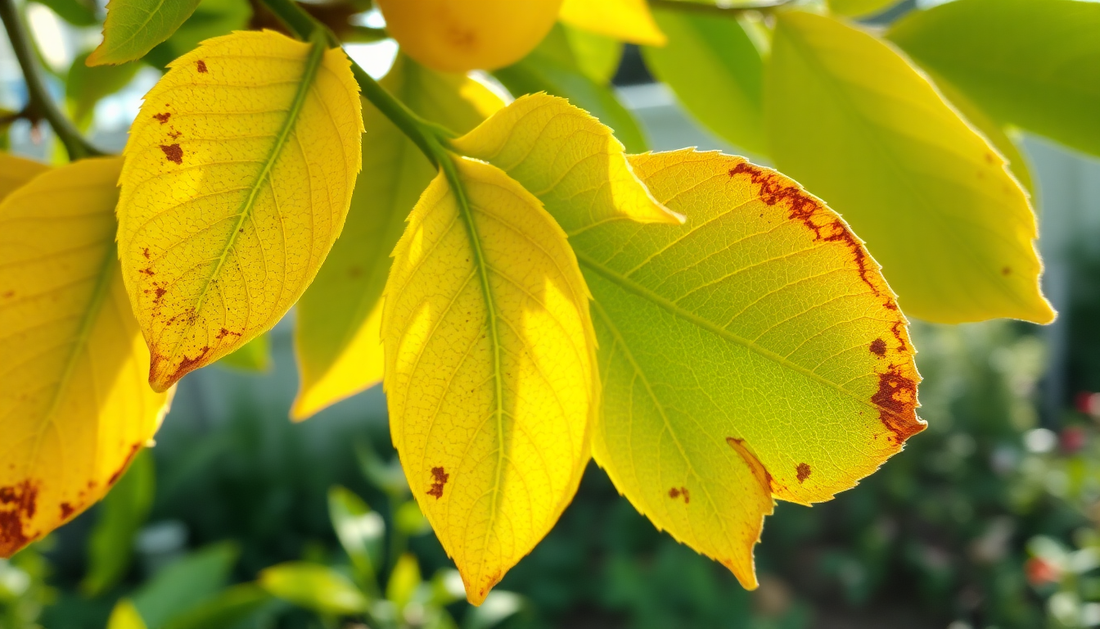
Why Do My Lemon Tree Leaves Have Brown Tips?
If you're a proud owner of a lemon tree, you may have noticed that the leaves sometimes develop brown tips. This can be a concerning sight, but don't worry - it's a common issue that can be easily addressed. In this blog post, we'll explore the reasons behind this problem and provide you with practical solutions to keep your lemon tree healthy and thriving.
Understanding the Causes of Brown Tips on Lemon Leaves
There are several potential reasons why your lemon tree's leaves may have brown tips. Let's dive into the most common culprits:
1. Underwatering
Lemon trees are thirsty plants that require consistent moisture to stay healthy. If the soil dries out too much between waterings, the leaves can start to develop brown, crispy tips. This is the plant's way of telling you that it's not getting enough water.
2. Overwatering
On the flip side, too much water can also lead to brown tips on lemon leaves. When the soil stays waterlogged for too long, the roots can become stressed and unable to absorb the necessary nutrients and oxygen, leading to leaf discoloration.
3. Nutrient Deficiencies
Lemon trees are heavy feeders and require a balanced diet of essential nutrients to thrive. If your tree is lacking in key elements like nitrogen, magnesium, or potassium, the leaves may start to show signs of deficiency, including brown tips.
4. Environmental Stress
Factors like extreme temperatures, low humidity, or exposure to harsh winds can also contribute to the development of brown tips on lemon leaves. These environmental stressors can disrupt the plant's natural processes and lead to leaf damage.
5. Pests and Diseases
In some cases, brown tips on lemon leaves can be a symptom of an underlying pest or disease issue. Insects like aphids, mealybugs, or spider mites can feed on the leaves, causing them to dry out and turn brown. Fungal diseases like citrus canker or anthracnose can also lead to similar leaf discoloration.
Addressing the Problem: Strategies for Healthy Lemon Trees
Now that we've identified the potential causes, let's explore the steps you can take to address the brown tips on your lemon tree's leaves:
1. Adjust Watering Practices
Ensure that you're providing your lemon tree with the right amount of water. Stick your finger into the soil to check the moisture level, and water the plant when the top inch or two of soil becomes dry. Avoid letting the soil become completely waterlogged or excessively dry.
2. Fertilize Appropriately
Feed your lemon tree with a balanced, slow-release fertilizer formulated for citrus plants. Apply the fertilizer according to the manufacturer's instructions, and be sure to adjust the amount based on the size and age of your tree.
3. Manage Environmental Conditions
If your lemon tree is exposed to harsh environmental factors, try to mitigate them. Provide shade or wind protection if necessary, and maintain proper humidity levels by misting the leaves or using a pebble tray.
4. Inspect for Pests and Diseases
Carefully inspect your lemon tree for any signs of pests or diseases. If you notice any issues, take immediate action to address them, such as using organic pest control methods or applying fungicides as directed.
5. Prune and Maintain the Tree
Regular pruning can help improve air circulation and light penetration, which can reduce the risk of fungal diseases and other issues that can lead to brown tips on the leaves. Additionally, keep the tree's canopy thinned out and remove any dead or damaged branches.
By addressing the underlying causes and implementing these strategies, you can help your lemon tree recover from the brown tips and maintain a healthy, vibrant appearance. Remember, patience and consistent care are key when it comes to growing a thriving lemon tree.
Conclusion
Dealing with brown tips on lemon leaves can be a frustrating experience, but it's a common issue that can be resolved with the right approach. By understanding the potential causes and taking the necessary steps to address them, you can keep your lemon tree happy, healthy, and producing an abundance of delicious fruit for years to come.
If you have any further questions or need additional guidance, don't hesitate to consult with a local horticulturist or experienced gardener. They can provide personalized advice and help you troubleshoot any specific challenges you may be facing with your lemon tree.
Happy gardening!







No comments